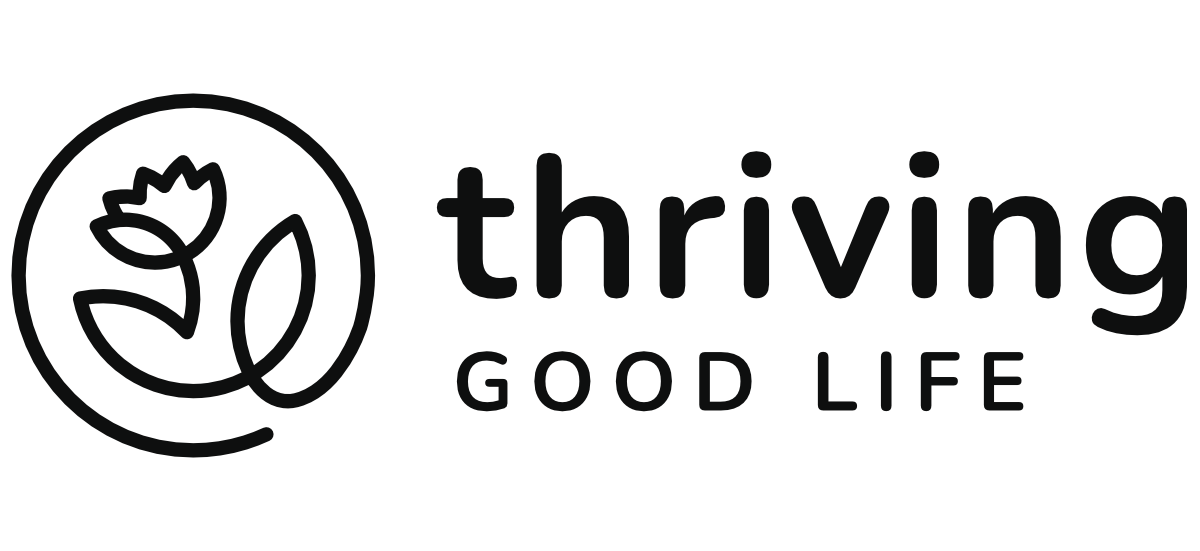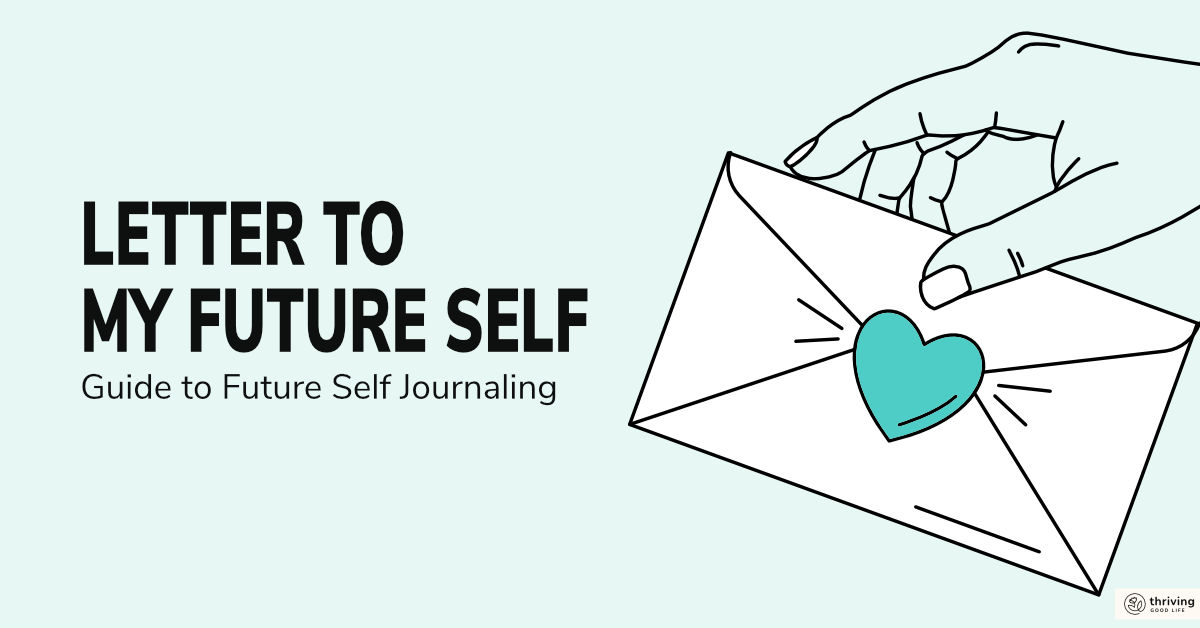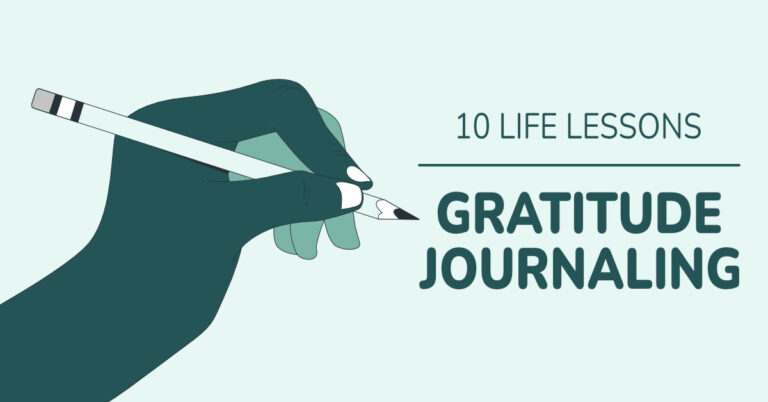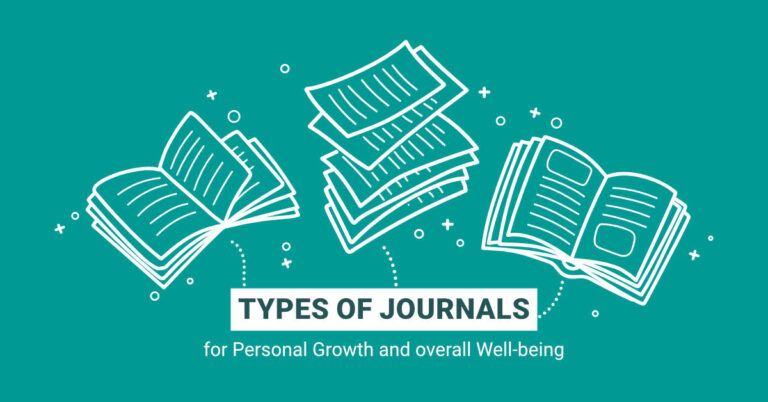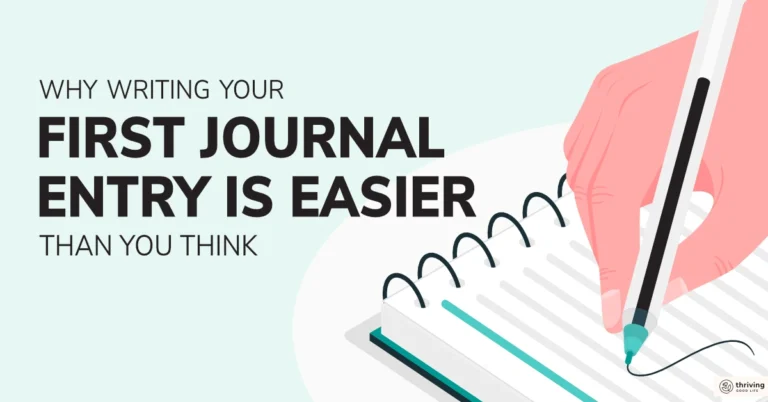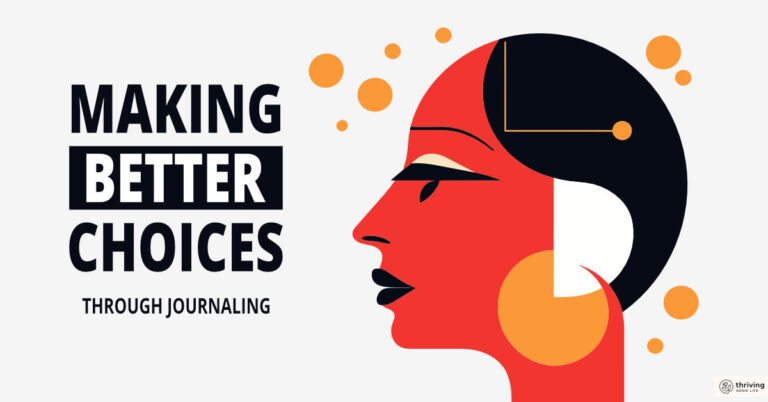Picture yourself as a 10-year-old, gazing up at the sky. Did you ever imagine you’d become the person you are today? If so, you’re one of the lucky few.
For the rest of us mere mortals, the path from childhood dreams to current day reality seems so far apart.
As kids, we dreamt big, and sometimes weird. We wanted to be an astronaut, ballerina, pilot… Wolverine.
But as we grew older, our visions narrowed. Teenage angst, peer pressure, and adult responsibilities took over, leaving our childhood dreams behind.
And this is where future self journaling comes to the rescue.
This method of self-inquiry is about recapturing that youthful ability to dream about the version of yourself you’ve longed to grow into, with no limits. Only now, we can combine that ideal you with the wisdom and self-knowledge we’ve gained over the years.
Through future self journaling, you don’t idly fantasize. You create a plan to become your best self.
Ready to start?
Reasons to Start a Future Self Journal
I’ve always enjoyed writing in my journal, but then a friend suggested I pen a letter to my future self.
At first, I was sceptical. In my mind, it felt like a namby-pamby exercise.
But after a bit of research, I realised, writing to your future yourself comes with perks. Here’s just a few of them.
1. We can reimagine our lives over and over
Most of us have limited insight into our future behaviour.
We tend to think that the person we are today is the person we will always be 1.
We get stuck in a pattern of catastrophic thinking. This not only clouds our present but also constrains our future, blinding us to the possibilities of change.
We convince ourselves that change isn’t coming anytime soon:
‘I’ll be single for the rest of my life’.
‘I’ll never get the job of my dreams’.
‘My life sucks, and it always will’.
‘I love pasta, and bread, and custard cream biscuits way too much… I could never give up carbs’.
But here’s a wonderful thing about the brain. It’s neuroplastic.
It’s capable of rewiring itself, which means we can learn, change and adapt to new experiences or information – regardless of our current situation or phase of life 2.
This reshaping ability of the brain is what makes future self journaling so effective.
When we write about the person we want to become – our goals, dream life and desired qualities, we’re building a blueprint for our future lives. And the more we visualize our future self, the more our brain works to match that vision 3.
Imagine writing to yourself about your dream job and reading it back when you’re finally there. By changing the stories we tell our future self, we can work towards the life we truly desire.
2. We can make better choices
You’ll be writing to yourself in your current guise. Which means, you’ve got the opportunity to plant little seeds of guidance.
And, hopefully, these will begin to sprout as you grow into your future self.
Do you have an inkling of what kind of life, or skills you’d like to have a year, five, or 10 years from now? Maybe you’d love to be fluent in a language, or become an accomplished guitarist. Maybe you’d want to have more money, develop new healthy habits, or be more sociable.
Use your journal to instruct your future self on the steps you need to take now to transform your later life.
With those steps written down, you’re more likely to make choices today that will benefit you in the future 4.
3. We can remember more clearly
When it comes to remembering past events in our lives, our memories aren’t very reliable.
I mean, can you remember what you were like 10 years from now?
How about five years? One year?
You might be able to remember bits and pieces, but it’ll be vague.
The entries you write to your future self can serve as a time capsule — making note of any major events, challenges, thoughts, feelings, and obstacles you were facing years before.
It’s a good way to keep track of the past versions of yourself.
4. We can see how much we’ve grown
It’s a satisfying feeling. That feeling you get when you realise how much you’ve grown over the years. But it’s even more rewarding to read your own written account of that growth.
Not just in the things we’ve achieved, but in how far we’ve come in our thinking, character, and attitude.
What better way to receive a comforting pat on the back, than from a letter you wrote years before. And what better way to use this as inspiration to continue to grow through the next chapter of your life.
How to Do Future Self Journaling
Getting started isn’t always easy, but hopefully, these tips will help.
1. Understand your purpose
Figure out your reasons for writing to yourself.
Is it for self-reflection?
To offer advice and support, share stories, and milestones.
Or express self-compassion and love.
Perhaps it’s a combination of the above.
Or perhaps it’s something different.
Knowing what you hope to achieve will make your journal entry more meaningful to the future you.
2. Decide on the format
Some people like to write in a paper journal (that’s my preference).
Others choose to write digitally.
While this article is geared towards paper users, you can choose to write digitally. You can use a tool called Future Me for this. It has the added benefit of providing storage for your future-self entry once written.
3. Be positive and hopeful
Okay, but what if you’re feeling sad, or angry at the time of writing?
Remember there’s a time and place to process negative emotions. And your future self journal is not it.
Ask yourself this:
Do you want the future you to feel the pain of what you’re experiencing today? Or, do you want the future you to revel in how far you’ve come?
If your future self is the person you want to become one day — a happier, more confident version of you — it’s in your interest to write with a sense of hopefulness.
You want to feel like you’re in a good enough place to do this.
4. Write your journal entry as a letter
Write as though you were writing an actual letter to yourself, as a friend.
When you write a letter that’s addressed to yourself in this way, it creates an expectation of content and tone. You expect this letter to be personal, familiar, supportive and direct.
What to Write in a Future Self Letter
Not sure of what to write in your letter? Below are a few suggestions.
You don’t have to write all these in a single letter. Pick a theme that interests you, and run with that.
Lessons learned
Write about mistakes you made that you overcame, and what you learned through the process. How did you go from being that person to who you are today? What steps did it take to get there?
Was it hard to overcome your challenges?
Write that all down.
Your relationships
How these have shaped you into becoming the person you are today. Tell stories about your family, and memorable moments.
Write about who your friends are, and why they matter to you. And what you hope your friendship circle will evolve into in the future.
Describe your current relationship with that special person, and what you hope that relationship will look like in the future.
Or if you’re single, write about whether you intend to stay single, or be in a relationship. Describe what your ideal partner will look, and be like.
Remind yourself to spend more time with the people you care about and offer advice on how you can improve these relationships.
Milestones you’ve reached
Did you get married, have kids, buy your first home, start a business? Include whatever milestone you feel is significant in your life.
Reflect and celebrate these life-changing events in your letter.
Things you’d like to change
Part of growing is recognising things you’d like to change.
Maybe you want to focus on improving your health, getting a better job, making more money. Or spending less time on social media, and more time reading and learning about yourself.
Be as candid as you can. Remember, your future self will thank you for it.
Question, question, question
It’s so much easier to talk about ourselves when we’re responding to prompts. So pretend someone else is asking the following questions:
What’s most important and valuable to you?
What will you be doing with your life – working, studying, traveling the world, enjoying retirement?
What would you have regretted not doing?
What’s been the best part of your life so far?
What kind of person do you want to be?
What have you learned?
What kind of people do you want to attract into your life?
What hobbies or activities bring you joy?
What or who do you need to let go of?
Answer each question in a way that speaks directly to your future self.
Here’s an example of a future self letter based on the following question:
Q: Tell me about a struggle you overcame?
Hey you 5!
I’m writing this letter to remind you of how your struggles make you a stronger person. Thank you for taking the time to read it.
Remember that time you said you wanted to start a business? You didn’t tell a soul, because you weren’t sure whether it would be a reality for you. Sure you dreamt about it plenty of times. Inspired by your dislike of your corporate job.
And then one day. Just like that, you made the decision to leave.
The day you handed in your resignation was one of the happiest. Like floating on cloud nine. Buh-buh cruel corporate world. Hello to boss-life and waking up at whatever damn time you pleased.
But you soon found out that working for yourself was hard AF.
You went through some lonely times. Sleep deprivation. Struggles with your mental health. Failure, after failure, after failure. Money worries (thank goodness you’d collected a gazillion loyalty points on your store card. That saved your ass when it came to the weekly food shop).
That was then, but you stuck with it.
You gained so many new skills, developing mental strength, and a character that continues to blossom. Look at you now. You’ve achieved the dream – you’re your boss. Succeeding. Thriving.
Building something you love while managing to pay yourself a regular pay check each month.
You no longer need loyalty points to bail you out of a food crisis.
Keep going girl. There’s so much more you can, and will achieve.
Now here’s some advice you need to listen to: don’t try and do everything on your own. Drop the superwoman façade. Ask for help when you need it. Asking for help isn’t a sign of weakness, it’s a sign of strength, and you need to lean into that more.
There are people who care about you in this world.
Don’t shut them out.
Love
Me x
I use a very casual salutation, but you can address it however you like:
Dear Future Self, Dear [Name]… whatever works for you.
And don’t forget to sign and date it.
…
You don’t need a time machine to have a conversation with yourself in the future. All you need is a pen, and a notebook to journal in.
Write to your future self so you can remind her or him of your goals, give yourself advice, and celebrate how far you’ve come.
Footnotes
- Gilbert, D. (2014, June 3). The psychology of your future self. Ted.com
- Pickersgill, J., Turco, C., Ramdeo, K., Rehsi, R., Foglia, S., & Nelson, A. (2022). The combined influences of exercise, diet and sleep on neuroplasticity. Frontiers in Psychology, 13.
- Catherine, B. (2020, October 19). Visualisation – It’s like weight-lifting for the brain. Research Communities by Springer Nature
- Hershfield H. E. (2011). Future self-continuity: how conceptions of the future self transform intertemporal choice. Annals of the New York Academy of Sciences, 1235, 30–43
- In case you’re wondering, that’s from a letter I wrote myself years back. It still makes me well up with gratitude tears when I read it
